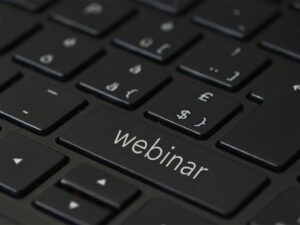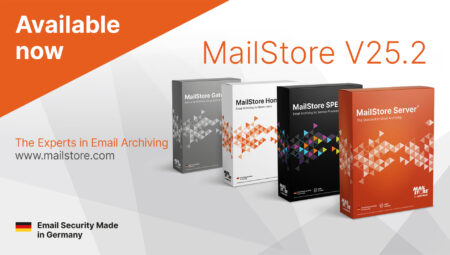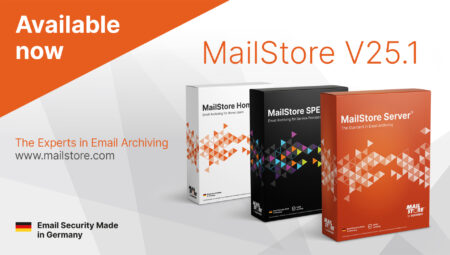
Email Overload: How to Deal with a Brimming Mailbox on Your Return from Vacation
Easter is approaching and, with it, holidays for many employees. Sadly, the holiday period has a wholly different look and feel in these times of pandemic compared with a couple of years ago, but many employees are still allowing themselves some time off to charge their batteries. Even if the next family vacation to the Canary Islands or the long-distance trip to Asia are still some way off, we can still enjoy the approaching holiday period, for example, by exploring local areas of interest with the family, enjoying the garden or – if the weather’s bad (let’s hope it’s not) – clearing out the basement!
And hopefully, by the end of the annual leave, we’ll return to our desks with a clear head and renewed vigor. You’ll boot the PC, sip a first cup of coffee in front of the screen, and open your email inbox …

… and then, for many employees, that’s it: memories of the peaceful time away from the desk dissipate in an instant as they realize that their inbox is brimming full of unread emails. There are some things even a pandemic can’t change. Any feelings of rest and relaxation are gone! If all this sounds familiar, you should definitely read on, because we’d like to give you a few tips on how to avoid the misery of post-vacation email overload.
What You Can Do Before You Leave
Before every vacation, you should draft a sensible out-of-office message. We’ve already discussed this issue in detail in an earlier blog post. A deputization arrangement put in place before your well-deserved holiday can significantly mitigate the problem of overflowing inboxes on your return. Rather than having to deal with them when you get back, your emails are answered by your deputy while you’re away. In this case, however, it’s important for your HR department and line managers to introduce regulations to ensure that your stand-in is not unduly burdened by the extra work.
But above and beyond organizational matters like these, every employee can take steps to declutter their mailbox before they depart on annual leave. For example, by configuring automatic rules or by running a cursory eye over any newsletters you may have subscribed to and don’t need any more: unsubscribing from them can help reduce the sheer volume of emails that arrive while you’re away.
What You Can Do While You’re Away
Relax, get some fresh air, clear your head; but above all, refrain from checking those emails!

Roland Latzel, Director of Marketing at MailStore, has a clear opinion on this: “Business devices such as notebooks and smartphones should remain switched off during vacation. I want my colleagues to relax while they’re on holiday. Giving your mind a rest is just as important as physical relaxation. That’s why, here at MailStore, we recommend that staff leave all business devices that might tempt you to check and, possibly, answer emails switched off for the duration of your leave.”
What You Can Do When You Return
Having taken the above tips to heart before your holiday, it’s now a question of coping with the flood of emails in your inbox. So first, you need to declutter:
1. Read the most recent emails first
After two or three weeks’ away, your trusty office deputy will already have dealt with some of the correspondence.
2. Categorize your emails
Decide which issues have absolute priority, which messages can be set aside for resubmission later on, and which can simply be deleted without further ado. You should really apply this method to all emails you receive.
3. Invite the person who deputized for you for a (digital) coffee
You should now have an initial overview of the situation. Before you start answering emails, check with the person who deputized for you while you were on vacation. Identify the issues that still need to be dealt with and those that have since been settled. And remember that a little word of thanks goes a long way – and your trusty colleague will be willing to stand in for you again next time you go on holiday.
The Clean-Slate Approach: Deleting Emails Automatically as They Arrive

Some time ago, Daimler came up with a very special, albeit rigid solution. In 2014, the group launched “Mail on Holiday”, a program that used an automatic “out-of-office assistant” to provide 100,000 or so email senders with details of the recipient’s holiday stand-ins. Nothing unusual about that, you might think. But the real highlight about this program was that the incoming emails were automatically deleted in order to avoid colleagues being confronted with overflowing inboxes on their return to the office. Sounds tempting, doesn’t it? Yet the problem with this solution is that it takes no account of corporate or statutory compliance requirements. What would happen, for example, if a declaration of intent (e.g. serving of notice on a contract) were to arrive by email while the recipient was away, only for this correspondence to be deleted automatically from the recipient’s mailbox the moment it arrived? If this happens, the declaration of intent might still be legally effective, but nobody in the company will have any idea of its existence. This risk should be considered very carefully indeed.
Data Loss due to Deleted Emails can be a Critical Problem for a Company

“Many businesses and organizations around the world are facing a growing number of compliance requirements, so they should keep in mind that incoming emails may be subject to statutory retention policies. This is why you shouldn’t irrevocably delete all emails on a general basis. It can be important, for example, to store your emails over time in a form that is complete, faithful to the original, tamper-proof, and permanently available,” says Julian Jansen, Legal Counsel at MailStore.
And this is where an email archiving solution such as MailStore Server can be of great help. When configured correctly, journal archiving ensures that emails remain available in the long term for browsing – even after they have been deleted from the user’s mailbox. In this way, employees whose recent correspondence has been automatically deleted from the mailbox while away can still access that critical email, for example by using MailStore Server’s Outlook-integrated search function, should this become necessary.
No matter how you and your company want to cope with the deluge of emails that may await you on your return from vacation, we as the experts in email archiving hope you have a relaxing time this Easter, wherever you may be. Perhaps you could use the Comments section to let us know how you dealt with your own personal “post-vacation email overload” and which methods you’ve tried out so far.

Additional Useful Information
- Business Email and Regulatory Compliance – What You Need to Know
- What is Email Archiving?
- Email Archiving vs. Backups – The Critical Differences
- Managing Emails: Is a Folder Structure in the MailStore Archive Necessary?





